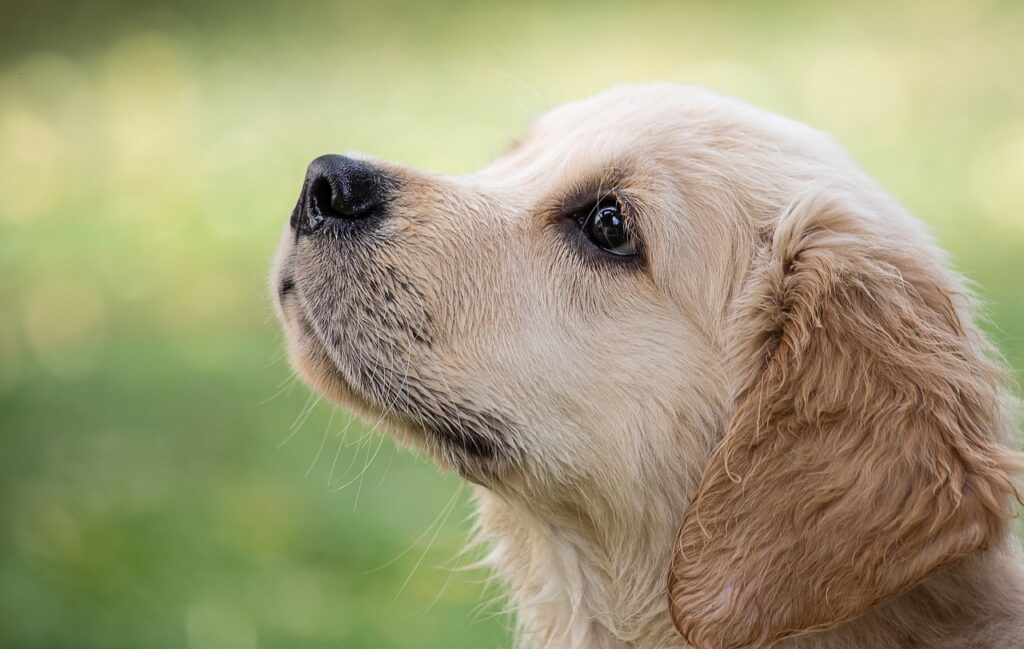Can Dogs Eat Octopus? – Yes, They can
Yes, dogs can nibble on octopus. It’s actually a unique source of lean protein, as long as it’s cooked properly and served in small portions. But, before you go treating your furry friend, it’s essential to know that raw or improperly cooked octopus can be harmful to dogs due to potential bacteria and parasites. The key is moderation and ensuring that no seasonings or added ingredients that could harm your dog are present. Plain, cooked octopus is the way to go when giving this sea creature’s meat to your canine companion.
Can Puppies Eat Octopus?
No, feeding octopus to puppies is not recommended. Puppies have sensitive digestive systems and introducing exotic meats like octopus can cause gastrointestinal upset. It’s best to stick to the puppy-formulated dog foods that provide the nutrients they need to grow healthy and strong. Once they reach adulthood, they can try different foods in moderation under a vet’s guidance.
Things to consider when feeding octopus to puppies?
While puppies should not be eating octopus, for adult dogs who can consume it, keep in mind that the octopus must be clean and cooked without spices or sauces that could be toxic to dogs. Choking hazards should also be considered, so it should be chopped into small, manageable pieces. Always start with a tiny amount to see how your dog reacts. If there are any signs of a negative reaction, discontinue and consult with your vet immediately.
Nutritional Benefits of Octopus for Dogs – Why Dogs can have octopus
Lean Protein Source
Octopus is a superb source of lean protein which is vital for your dog’s muscle development and energy levels. It helps in repairing tissues and can support your dog’s overall health when given appropriately.
Low in Fat
This seafood is relatively low in fat compared to other proteins, which makes it a good treat for dogs that need to manage their weight without compromising their protein intake.
Rich in Vitamins and Minerals
Octopus comes packed with essential vitamins and minerals such as vitamin B12, iron, and selenium, contributing to your dog’s nervous system health, red blood cell production, and immune function.
Contains Omega-3 Fatty Acids
Omega-3 fatty acids in octopus are good for your dog’s skin, coat, and cognitive function. They help reduce inflammation and are beneficial for dogs with joint issues.
Good Source of Taurine
Taurine is an amino acid found in octopus, which can be beneficial for your dog’s heart health. Dogs usually produce taurine on their own, but some may benefit from dietary sources.
Potential Allergies: Can Dogs Be Allergic to Octopus?
While allergies to octopus in dogs are fairly uncommon, they can still occur. It’s important to watch for symptoms and consult with a veterinarian if you think your dog might be allergic to this protein.
Symptoms of Octopus Allergies in Dogs
- Itching or Skin Irritation: Look out for excessive scratching, licking, or any red and bumpy skin rashes.
- Upset Stomach: Symptoms like vomiting or diarrhea can be signs of a food allergy.
- Respiratory Issues: If your dog starts coughing or wheezing, they might be allergic.
What to Do If Your Dog Shows Symptoms?
- Consult a Vet: Get professional advice to rule out other causes and discuss treatment options.
- Elimination Diet: Your vet may suggest an elimination diet to identify the allergen.
- Immediate Care: In cases of severe reactions, urgent veterinary treatment is necessary.
Recommended Amount: How Much Octopus Can a Dog Consume?
The recommended amount of octopus for a dog depends on the individual dog’s size, age, and activity level. Generally, it should only be a small portion of their diet. An occasional small chunk as a treat is usually enough, and it should not replace their regular balanced dog food.
Things to Consider When Feeding Octopus to Dogs
Any time you’re giving your dog a new food, introduce it gradually to monitor their reaction. Additionally, the octopus must be cooked and not seasoned to avoid potential health issues.
How to Feed Octopus to Dogs: A Quick Guide
Giving your canine buddy a taste of octopus can be a delightful treat, especially if cooked in a dog-friendly way. Here’s how you can make it a safe snack for your pooch.
Simple Steamed Octopus
Steam a small piece of octopus without any seasoning until it’s fully cooked. Cool it down and cut into bite-size pieces suitable for your dog’s size, and ensure there are no tough or rubbery parts.
Octopus Doggy Jerky
Cook the octopus thoroughly, slice it into thin strips, and bake at a low temperature until chewy to turn it into homemade jerky. No salt or spices, please!
Octopus Mix-In
Finely chop a small amount of cooked octopus and mix it into your dog’s regular food for an added protein boost. This can be especially good for picky eaters or to encourage eating during recovery periods.
Conclusion
In conclusion, while dogs can eat octopus, it is not a necessary part of their diet and should be treated as an occasional snack rather than a staple food. Always remember to introduce new foods slowly and keep an eye out for any adverse reactions. With those simple tips in mind, you and your four-legged foodie can safely enjoy a bit of oceanic variety.



